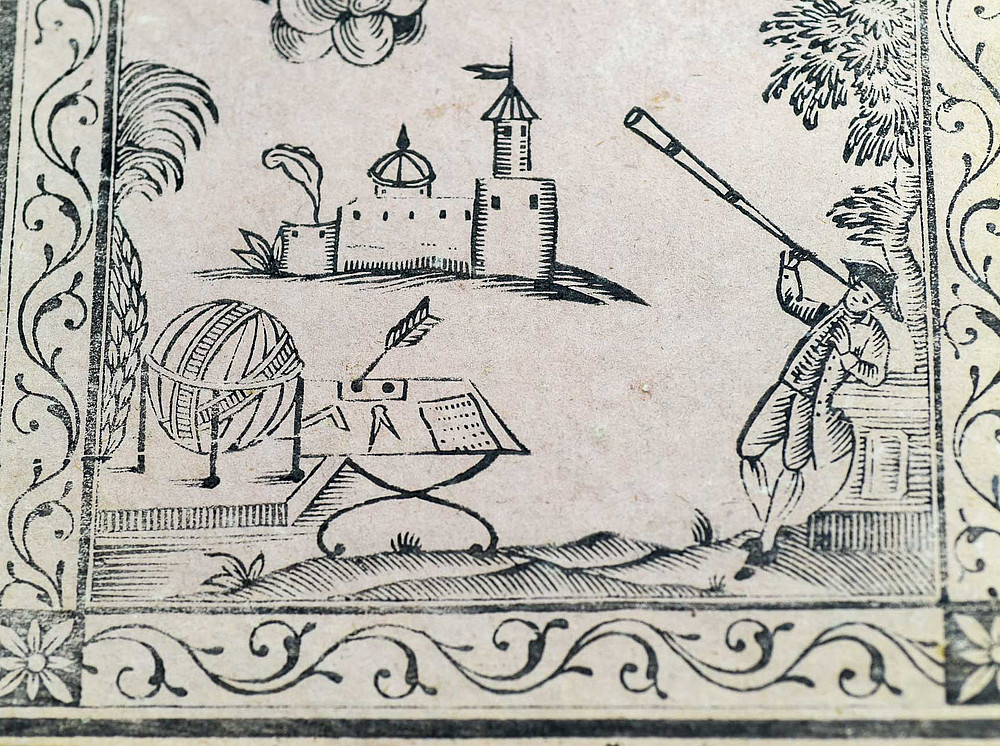About us
The University Library Graz is the only University Library in Austria to operate a restoration department within the framework of the special collections. This is responsible for maintaining the holdings of the Special Collections and preserving them for present and future generations. Our main task is to stabilize collections while preserving the original structure, function and special characteristics of historical objects. Our work includes preventive measures such as climate control and storage on the one hand and restorative interventions on the other, ranging from minimal "first aid" to complex and time-consuming restorations. In addition, we prepare loans for exhibitions and collaborate with outside agencies, such as in education and training, internships, summer courses, and research projects. Restoration actively participates in Vestigia, our university's center for the study of book and manuscript heritage, to contribute to the appreciation and understanding of our collections and historical books in general. By taking a minimal approach to the interventions we perform on objects, we are able to ensure that our collections are preserved along with all of their historical features. In doing so, we rely on an ethical and well-established way of working and are committed to sharing and transmitting knowledge.
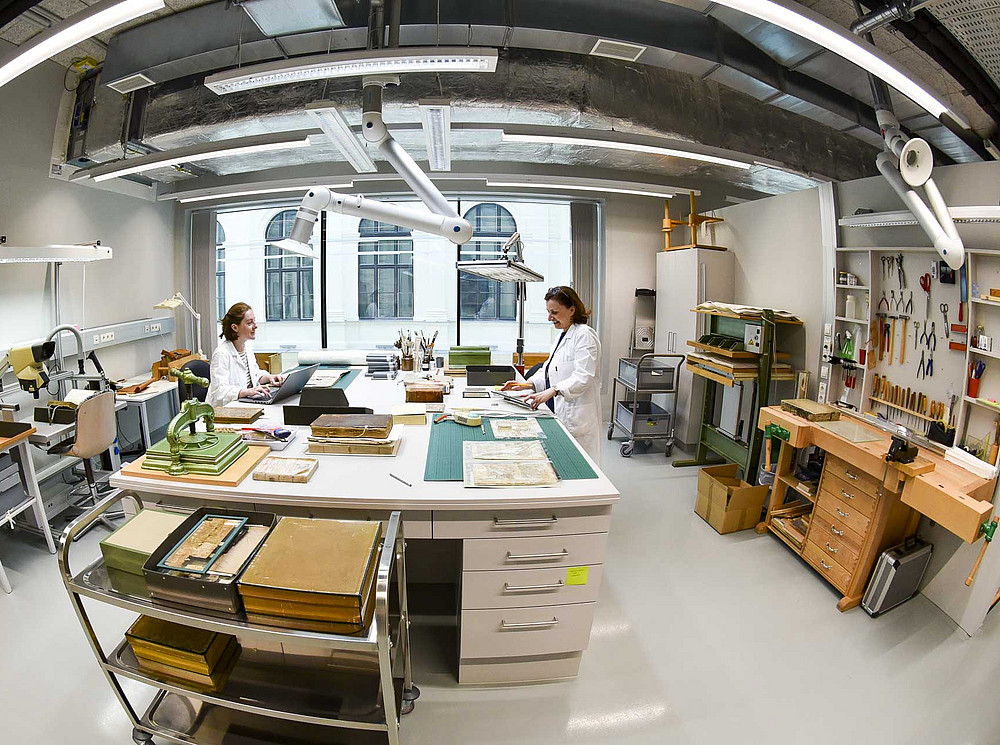
Preventive conservation
Preventive conservation involves influencing the environment of the collections in such a way that it creates the best possible conditions for the long-term preservation of the objects. This includes, among other things, regular climate control of the stacks, pest monitoring and control, assessment of the shelves and production of containers to protect our objects.
Preventive conservation also includes providing information on the proper handling of collections. We provide bookends in the reading room of the Special Collections so that our readers can use the objects in the collection in the gentlest way possible. Our staff members are also trained in the handling of historical objects and are happy to advise or help with the handling of our valuable holdings.
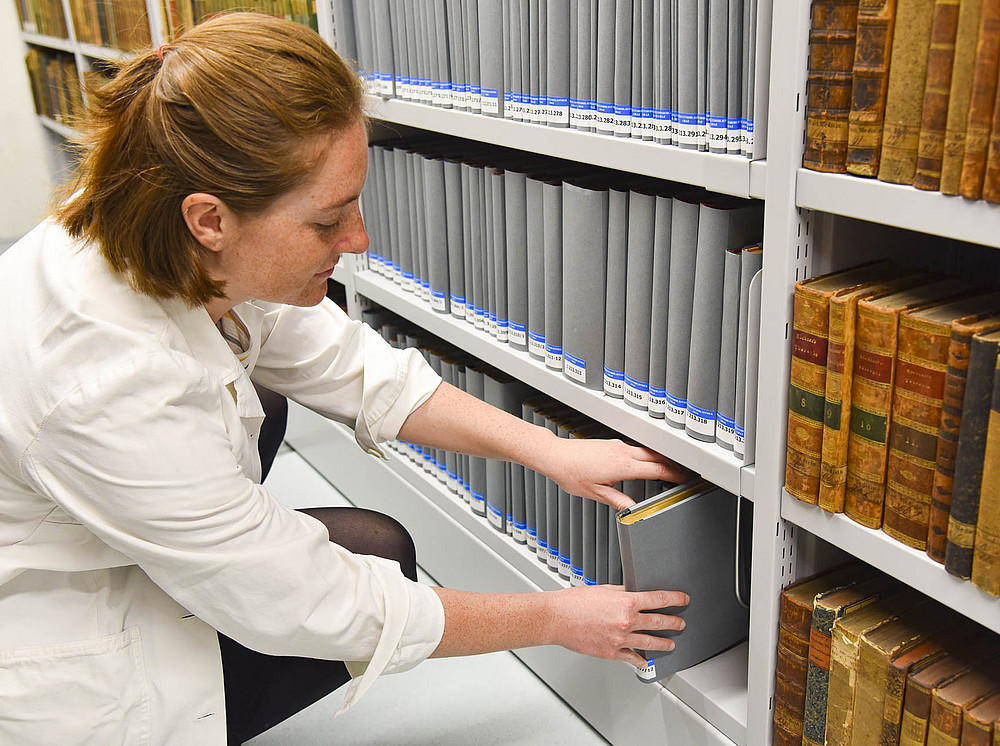
Restoration
In contrast to preventive conservation, restoration involves making repairs to damaged objects in order to stabilize them for future use - and, if necessary, for digitization. In restoration, we use high-quality materials tested for chemical stability and durability, and take into account internationally recognized ethical standards, such as the Code of Ethics established by E.C.C.O. (European Confederation of Conservator-Restorers Organizations). Our work on the object includes its research on historical-contextual and scientific-material levels as well as the precise documentation of its condition and restoration processes. We evaluate the condition of collections in order to prioritize and effectively plan restoration work. We also conduct appraisals for exhibitions and loans and ensure that pieces can be safely transported. Examples of our projects and service offerings can be found here.
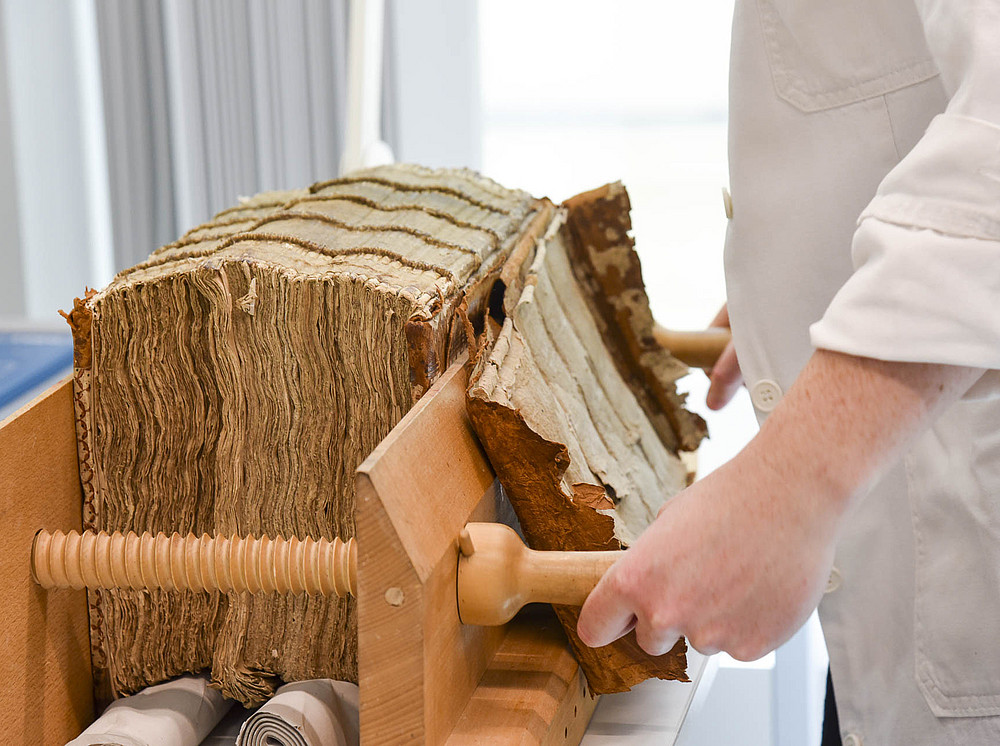
Premises
The restoration is housed in the recently renovated premises of the main library and is located on the first floor. On one side it is adjacent to the historic reading room, on the other it overlooks the glass-roofed foyer and the façade of the main building opposite through large windows. The bright and spacious rooms are divided into smaller areas specially equipped for different tasks. These include a photo studio with special lighting and various cameras, a laboratory for analyses and the preparation of materials, an area for wet treatments and the coloring of materials, and a work area for restoration work.

Equipment
The workshop is equipped with modern, purpose-built equipment for restoration, including an aspiration table, a chamfering device, various microscopes, a biological safety workbench, large work surfaces, and various bookbinding tools and materials. It also houses a small specialized library. The Restoration is well suited as a meeting place for discussions on conservation and restoration and is also used for continuing education and guided tours.
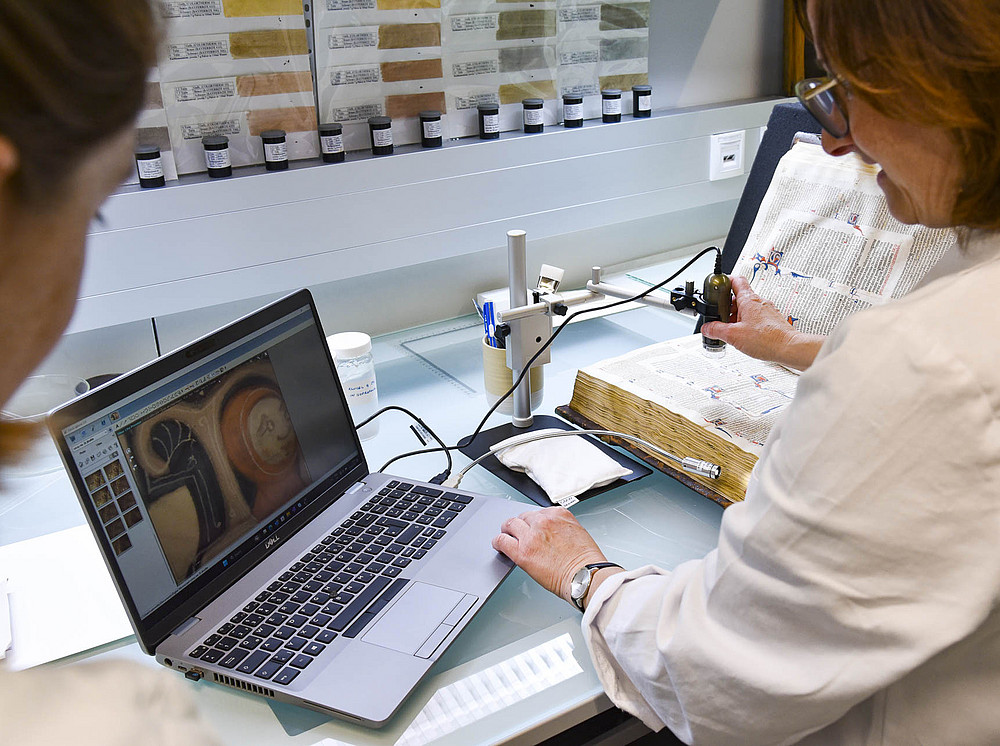
Research, internships and continuing education
An important concern of the Special Collections is to provide interested individuals with access to the holdings, both on-site and online. We value thirst for knowledge, motivation, and initiative as core values of an educational institution. Therefore, we strive to facilitate internships and support research projects by providing opportunities to handle, study, and participate in the preservation of Special Collections holdings. We also offer courses on topics such as codicology and book history. Here you can find more detailed information about research and continuing education in the field of conservation.
